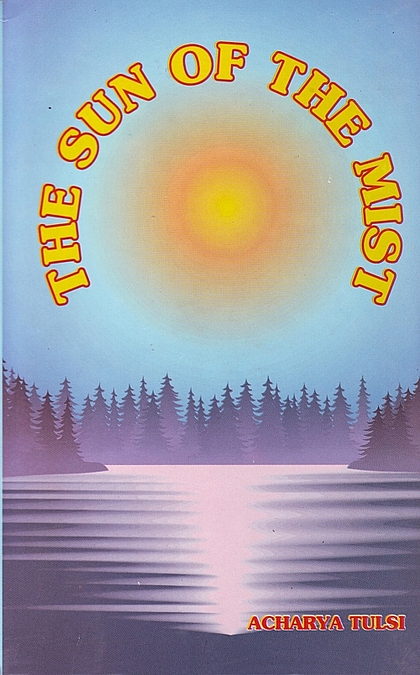In the Jain tradition, festivals and days of commemoration occupy an important place. These festivals are not meant for merry— making or entertainment, or for indulging in eating orgies. Their one and only objective is purity of life, cleansing of the heart, and peace of mind. A festival which ensures these, establishes its uniqueness of itself. But if purity, clarity and peace evade one even after performing worship, the relevance of the festival becomes questionable.
The greatest of the Jain festivals is Sanvatsari, the Annual Festival. The second day of this Annual Festival is the day of khamat khamna, i.e. the day of forgiveness. It is a festival in its own right. lt is meant to make an individual great. All limitations of relationship are transcended; the line of demarcation between oneself and the other stands dissolved. The lava of attachment and malice melts away. Friendship and equality flower in life. In such moments, the individual is overwhelmed by compassion and says to himself, "My heart is full of goodwill towards all living beings on earth, big or small, with malice towards none," This pledge of friendship on the experiential level is a great thing But in actual practice it is directed only towards men or living beings with whom one is not related with whom one has no acquaintance or concern. It is not difficult to extend a hand of friendship towards strangers.
The important thing is to extend goodwill to one‘s friends.ls it possible to extend the hand of friendship towards people who have hurt one’s ego, injured one’s interests, betrayed one’s trust, and relationship with whom has consequently become soured? Such kith and kin that did one no harm even in a dream, and yet have grown strangers due to some misunderstanding? ls it possible to become intimate with them again? If the person celebrating khamatkhamna the Festival of Forgiveness has no positive answer to this question, is he not violating the ideal of universal love?
Khamatkhamna means to forgive and be forgiven. A man may pardon another in words, and yet his mind may be full of acrimony and anger. ls it forgiveness or a mockery thereof? An individual begs forgiveness, but is not able to forget the misbehaviour of the person before him. Does the act of seeking forgiveness without the mind being fully involved in it, have any significance whatsoever? Loud talk of identification with the universal consciousness, and yet a strong feeling of inner separation from all! From the outside, a show of love and friendship, while the inside is smouldering in the fire of discontent! In these circumstances, can one be said to have understood at all the significance of Khamatkhamna?
l know that a man who has not achieved perfection is possessed of many weaknesses. The perversity of mind is a defect. Until the mind is washed clean of all filth, the mirror of life cannot stay clear. If the mirror is stained, how can one see in it a clear reflection of oneself?
On the occasion of Sanvatsari, the Annual Festival, contrary to one’s usual behaviour, one professes to make up with 84 lakhs of living organism species, but to those with whom he has not been on good terms, towards whom he entertains malice in his mind, he says perfunctorily, "lf I have done anything wrong, forgive me.“ What does it mean? Actually, one should action hurt me greatly and my conduct, I know, has definitely hurt you. But today we must end all tension; we must find release from the burden of the past, and forgetting all bitterness, ‘we are going to establish friendship between ourselves, for ever and ever." Thus, to free the mind of all the dirt of the past and to regain mental balance is the true purpose of observing khamatkhamna, the Festival of Forgiveness.
Often little things cause ill will between the members of a family. On account of some petty dispute, they stop speaking to one another. And even after performing khamatkhamna, the members do not forget the discord between them and continue on unspeaking terms.
ln these circumstances, the observation of khamatkhamnathe Festival of Forgiveness, becomes a ludicrous affair. l do not hold that the mere ritual of khamatkhamna will make a man transcend his cravings and aversions, and establish him as an enlightened person, but at least after such an observance, one should be able to undo the knots created by petty considerations in one’s personal life.
The festival of khamatkhamna calls upon all religious people, brothers, fathers and sons, husbands and wives, mothers and daughters -and sisters-in-law, the master and the servant, etc., to remove harness from their relationship with one another and to close the widening chasm between them. This is important not only for the laity, but also for the initiated monks and nuns. If a knot forms in the mind in respect of any other fellow-monk or nun or the lay devotees, one must immediately undo it and be free from tension.
 Acharya Tulsi
Acharya Tulsi
